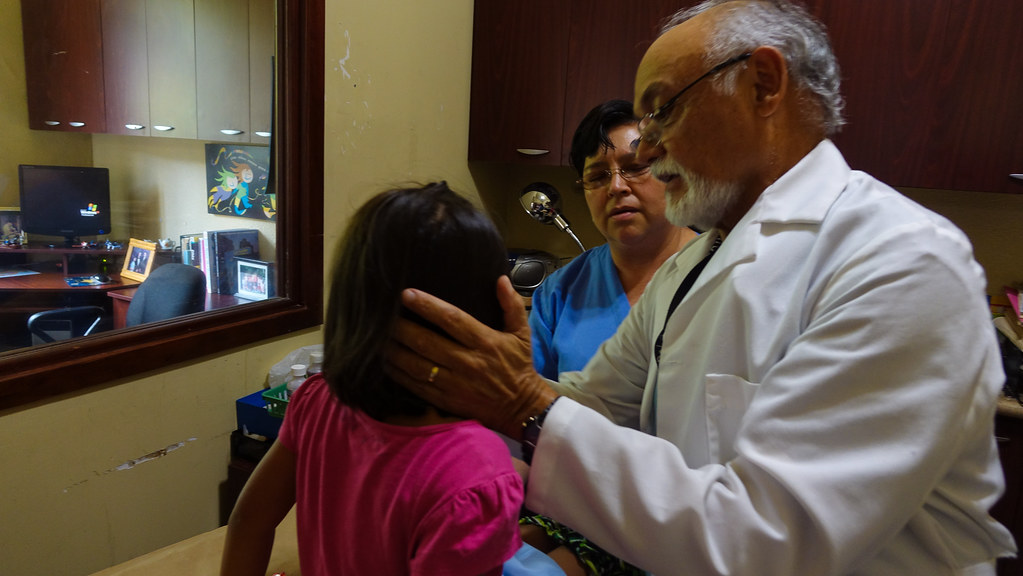
What would we do without Doc Castro? He cares for our kids, makes us laugh, and brings us good coffee. Today, Doc is sharing an update about the COVID-19 pandemic in Guatemala and how he’s protecting our home.
Q: How has COVID-19 affected Guatemala?
I first learned about COVID-19 early in January. Soon afterward we understood how contagious it was.
On March 13th, Guatemala discovered its first case, with a second case the next day from a member of the same family. They were placed into quarantine at a special hospital prepared for this exclusively in advance.
To date (3/29/2020), 36 positive results are confirmed, 1 person succumbed to the virus, and 10 have fully recuperated. Additionally, 1,400 people are quarantined in the hospital or their homes.
Q: The Guatemalan government seemed to quickly enact precautionary measures after the first confirmed case. Are you seeing good results from the precautionary measures in the country as a whole?
Our president, Alejandro Giammattei, is a physician. He is optimistic because he quickly reacted with extreme measures. He quickly quarantined potentially infected people and is using a dedicated hospital for COVID-19 patients. These measures allow other hospitals to provide continuous service to other ill patients and increase health system preparedness.

There is hope in all of us that we will be able to prevent and contain the spread of the virus to manageable levels, allowing us to return to our ordinary lives in a month. But, no other country has been able to contain the spread in a matter of weeks. Thus, we must be prepared for the worst outcome and hope for the better. We are applying the most extreme measures such as quarantine, social distancing, early diagnosis, and isolation measures with the whole country’s support.
Q: What is your greatest concern about COVID-19 in Guatemala as a whole?
Risks are plenty. What makes Guatemalans more vulnerable to natural disasters and in this case the pandemic is its impoverished population. Even though the average age of our popular is younger than in many developed countries, many people suffer malnutrition (both under-nutrition and obesity). Many are also diabetic. Forty-three percent of children in Guatemala suffer chronic under-nourishment, making them more vulnerable to gastrointestinal and respiratory tract infections because of their compromised immune systems.
Before this pandemic, other viral infections were already affecting poor rural and urban areas, such as Dengue fever with 17,000 cases in a year.
Q: What measures are you taking at Dorie’s Promise to prevent infection?
We are aware of infectious diseases outbreaks because we suffered two serious viral outbreaks 13 and 14 years ago. First, the rotavirus and then 6 months later, adenovirus pneumonia affected 43% of our children. Thankfully, we haven’t experienced any other outbreaks since that time due to our excellent preventive and curative measures.
We have experience with epidemics, but not one this aggressive.
In early February, I wrote preventive measures to be taken by the personnel and the children. Then, we started an education program about COVID-19 and the way it affects different ages, symptoms, possible outcomes, and prevention. We designed checklists to establish the most important routines and emphasized the importance of following these strict rules.

Now that we are satisfied with our preventive plans, we are teaching a contingency plan in case we are directed affected. Our staff will be prepared to isolate, treat, care, and possibly evacuate.
Q: What do you want people to remember?
Please don’t forget Dorie’s Promise and the kids and adolescents we serve.
I just hope our friends are safe and taking measures to maintain their faith, happiness, and hope. Pray for humanity, for your country, for Guatemala, and for our kids’ safety and well-being.
I sincerely hope that all of us will become resilient and much better people from now onwards—better Christians, better human beings who care for others and all living organisms, treating them and our planet with respect.
The world won’t be the same and I hope societies will give priority and proper recognition to health, health services, health workers, and educators of other disciplines and professions. Also, we need to enhance social and health services for all, without discrimination, seeking equality and excellence.
God bless us all.
Watch Doc’s video update here. For regular updates and pictures of our new at-home school/life balance, follow us on Facebook and Instagram.